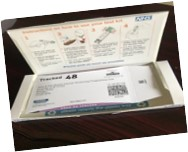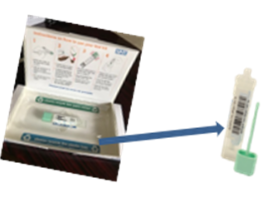The Call for a Kit Clinic Project (CFAKC) engages with the hardest-to-reach communities in Lancashire and helps saves lives by early intervention and early detection of bowel cancer.
The CFAKC started as a small pilot in 2015. The ethos of the project has and is “community engagement with a clinical twist”. Hard-to-reach non-responders in low uptake areas in Lancashire have been targeted and seen by a Community Health Promotion Team within a Primary Care setting. Various community engagement models are then used to influence non responders to participate in the Bowel Cancer Screening Programme (BCSP). After the initial 2 year pilot project it was prime funded by NHS England/Public Health England and Lancashire BCSP for a further 2 years. As a result of some excellent outcomes the project has now been block contracted and is a mainstream service within Lancashire.
The CFAKC initiative involves holding specific clinics within GP practices where individuals (non-responder’s patients – NRP) who have not completed the Bowel Cancer Screening Programme (BCSP) test kit are invited to the GP surgery by the practice to meet members of the BCSP Health Promotion Team (BCSP HP team). At the 15-minute clinic appointment the NRP is shown the kit, multi-lingual leaflets are given, and a video is shown on how to complete the kit. Using your bowel cancer screening kit on Vimeo (multilingual video resources).
All patient questions and worries are addressed within the clinic and after consent kits are ordered on behalf of the NRP from the HUB. Individuals unable to attend a CFAKC will be offered a telephone consultation. To increase engagement gender/language specific clinics are offered within ethnically diverse communities.
Independent evaluation from Edgehill University and independent HUB outcome data from the CFAKCs have verified the success and impact of the project. The Edgehill University evaluation study showed GP practices greatly valued the service and welcomed the intervention especially due to its targeting of the persistent hard-to-reach non-responders and the South Asian communities.

